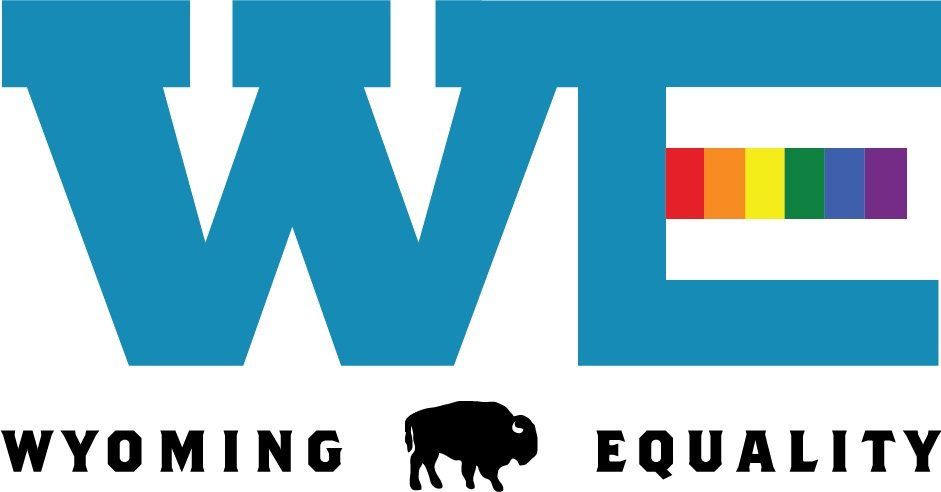United Voice: The Wyoming Equality Magazine
June 2023 Issue
Reports
Inclusivity & Public Health
Wyoming Equality Staff discuss the work going on around Wyoming
by Kota Babcock
As LGBTQ people, we often interact with public health without even realizing it. Public health clinics offer free testing at our campuses and at our social events. They advertise to us on our dating apps. While defined by the Oxford Dictionary as “the health of the population as a whole, especially as the subject of government regulation and support,” modern public health practice frequently prioritizes and centers marginalized communities like our own.
Public health on a national level has followed our community closely since the start of the AIDS epidemic in the 1980s. Yet this field does not typically see us as a risk group, but rather as a group in need of specialized services. For instance, since cisgender heterosexual people often fear pregnancy, they frequently understood the need to use condoms, even prior to the AIDS epidemic. With sexual minorities, this often didn’t seem necessary. In fact, safer sex access for lesbians, including transgender women with partners on birth control, remains relatively low in many communities.
Public health focuses on dozens of categories, with sexual health and communicable disease making up just one. In Wyoming, we all interact with public health as Medicaid recipients, aging adults, those concerned about mental health, chronically ill and disabled people, people seeking vaccinations, and as new parents navigating the complex health needs of our infants. Additionally, the Wyoming Department of Health (WDH) has an entire division dedicated to rural health, something distinctive to states like our own.
In Wyoming Equality’s Healthcare Access Survey from 2021, our organization found a severe need for access to affordable and non-judgmental healthcare services, with an emphasis on options for low-income individuals. In a national report from 2021, the Kaiser Family Foundation found that 34% of LGBTQ people live below 200% of the federal poverty line. They are more likely to be employed only part-time compared to straight counterparts. One third of respondents had had a negative experience with a healthcare provider compared to just one in five non-LGBTQ people. Disparities in health quality and healthcare access were especially prevalent among LGBTQ women nationally (a group that made up a majority of the responses from Wyoming Equality’s Healthcare Access Survey).
Along with many other departments, the Communicable Diseases Unit at WDH has tirelessly worked to train staff on fighting discrimination and empowering LGBTQ individuals to feel comfortable disclosing their gender and sexuality to case managers and nurses, regardless of whether anyone else in their life knows about these parts of themselves. While unable to offer sliding scale services at public health offices, several divisions have enlisted the support of charities, Title X (sexual and reproductive health clinics), and community health clinics to fill these gaps. They have thoroughly trained their staff, and offered grant funding for WDH outreach staff members to work in Title X clinics to assist in this effort.
As a testament to their intention to better work with the LGBTQ community, the WDH Communicable Diseases Unit funds Wyoming Equality’s information campaigns on MPox (formerly known as Monkeypox) and vaccinations. The Unit also provides funding for two positions at WE, increasing our capacity to train other health professionals and better steer our community toward health insurance resources, health provider access, and with COVID-19 and STI/HIV prevention education.
In addition to my own professional experiences with this entity, I am a patient of two clinics that work closely with WDH. At my first ever pap smear, I was lucky to feel welcome and comfortable throughout the experience, despite having avoided the screening while living in the much more liberal states of Colorado and Washington. Being a man in need of a pap smear had steered me away from services even though I had qualified for them before, but seeing firsthand the efforts to better serve LGBTQ people made an uncomfortable, dysphoric experience into one that was largely affirming and helped me to better understand my current health status.
Thanks to public health offices and Title X clinics, LGBTQ Wyomingites often have safe and affirming access to healthcare across the state. The leadership of WDH staff in creating supportive environments has improved our community’s access to care significantly. Paired with our efforts, the work of these providers has significantly changed the landscape for Wyomingites in need of LGBTQ-supportive, non-discriminatory care.


